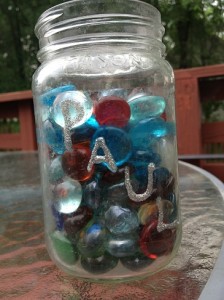Three Ways Adoptive Parents Can Work to Form Healthy Attachments
By Guest Blogger Juan Santos M.S., CRC, LPCA
Each year, November is recognized as National Adoption Awareness Month. If you are looking to adopt, feel free to visit our adoption category here. If you are a parent of an adopted child, we hope today’s blog will be beneficial to you.
Building a healthy attachment between a parent and child is critical for the development of the whole child and the emotional connection established between the child and their parent. Here are three ways adoptive parents can work to form healthy attachment with their child:
1. Be available
What I mean by this is that you, mom or dad, are fully available to your child. Your child due to their origin has experienced a form of abandonment. This maybe not the type of abandonment that most people would consider. For this reason it is critical that parents are available in a form possible. Be there for your child by:
• Texting them throughout the day.
• Stopping to put your work down to have a conversation with him/her.
• Saying “I love you”; “I care about you”; “I will never leave you” more often.
• Remembering that they have a history and that history impacts who they are and how he/she behaves.
2. Understand your child(s) behaviors
As a result of the adoption process and the many symptoms and outward behaviors that can be expressed, it is vital that you (mom or dad) “Do not take your child’s behaviors to heart.” More often then not, the behaviors are not a result of the action that took place, but instead an underlining factor that is associated with adoption. With that being said, take action by learning your child(s) behaviors:
• After a tantrum has taken place, sit with your child in a quiet and neutral place to discuss what took place and “why” they behaved in that manner.
• Think back to what “words” your child spoke during their tantrum. Do the words have any association with previous adoptive issues that have risen? If so, take note and further engage in them.
• Remember the profanity and the kicking of the bed or holes punched into the wall are not aimed at you. They are often associated with deeper emotions such as anger, frustration, or feelings of abandonment that are associated with adoption.
3. Mom and Dad… Your Words are POWERFUL
Please remember this as you remember to brush your teeth each and every day. Your words are powerful and they play a vital consistent role within your relationship with your child. You are the parent so you, better than me, know what words speak to your child. Here are a few that you can practice in case you fall short in your list.
First make sure to have a strategy so that you remember to communicate with your child more often. Maybe on your smart phone have a daily reminder to send something sweet and loving to your child. Or you can place sticky notes on the fridge. It’s up to you. Be creative and punctual.
• “I have missed you all day. I missed you from the minute you left to school.”
• “You are the best son/daughter I could have ever asked for.”
• “You and I are so much alike. For instance, _______. No wonder we get along so well.”
• “Have a great day at school, please remember that you’ll be on my mind all day long.”
• “How was school today? I missed you very much. Lets do something together.”
• “I want to hear all about your day at school. Who did you sit with at lunch? What did you eat?”
Remember words are strongly associated with actions.
___________________________________________________________________________
Thank you to our guest blogger today for his insight. If you have questions or tips of your own, feel free to leave a comment below!








Fingers crossed, we will be accepting a foster child into our home soon. This has me excited and ready to accept him with open arms and love!
Congratulations! To you as you add an new addition to your family. I encourage you to be patient and willing to allow your child to guide you closer to them.